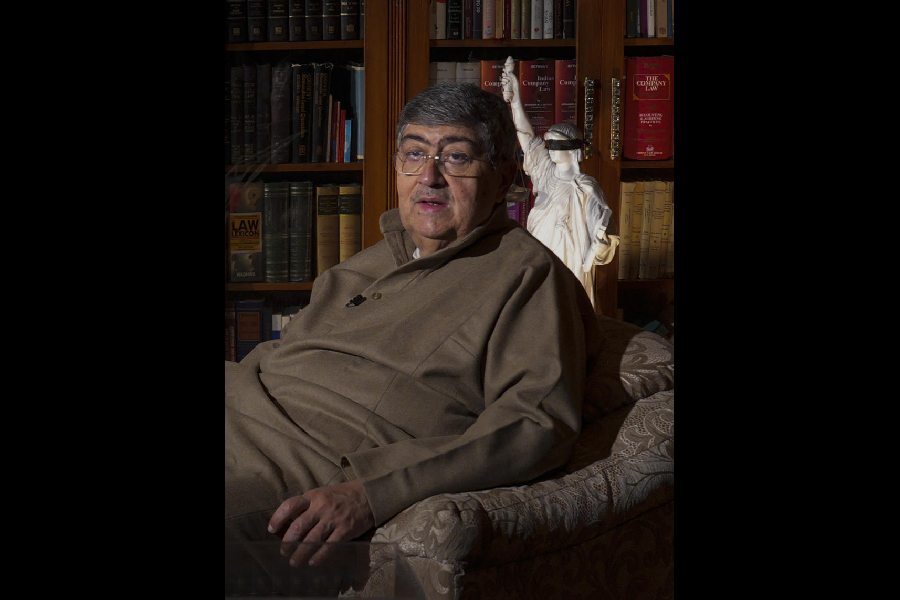Justice Sanjay Kishan Kaul, the second senior-most judge of the Supreme Court till recently, has said the “logjam” in the appointment and transfer of judges is owing to the government being “aggrieved” over a five-judge constitution bench striking down as “unconstitutional” the National Judicial Appointments Commission (NJAC) in 2015 in which the executive wanted a say.
In an interview with The Telegraph, Justice Kaul, who retired on December 25, stressed an alternative to the collegium system, like a “tweaked” NJAC being brought back with a role for the government, in which the Chief Justice of India will have the final say or veto power in case of differences between the judiciary and the executive.
While under the present collegium system, the CJI and the four senior-most judges have the final say in the appointment and transfer of judges, the NJAC passed by Parliament but struck down by the Supreme Court envisaged a six-member panel comprising the Chief Justice of India, two senior-most Supreme Court judges, the Union law minister and two “eminent persons” to be picked by a selection committee.
“I am not denying that governments in all systems have a role to play, but since the NJAC had been struck down, that’s something which the political spectrum seems to be aggrieved by. But this is the law (collegium system) for the time being and that is why I have been saying that till the collegium system exists it must operate in the way it is supposed to operate and appointments must get cleared,” Justice Kaul said.
“Selective appointments create a problem. In terms of seniority of judges, we still have a very large number of recommendees pending. There are categories of cases which have been reiterated but not appointed. There are cases recommended for the appointment, but have come back without appointment. We have today three chief justices (for high courts) recommended sometime back, there nothing has moved,” he added.
“Why I feel there is a problem in the collegium system is that the appointments are not taking place despite the collegium system existing for a number of years. Yes, appointments have taken place, but there are a number of cases still stuck in the system. There may be, almost I think, 13 cases where the first recommendation had come back; reiterated recommendation…. So, a resolution is necessary. Why I said the NJAC is necessary and maybe tweaked or in some other form would have worked better because there will be dialogue across the table. Because this logjam, which is to some extent created, would be reduced by the methodology of better communication between the government and the judiciary on the administrative side,” Justice Kaul said.
However, the former collegium member did not agree with the question that there was a “constitutional breakdown” on account of the Centre not adhering to the “dharma” of separation of powers by not respecting the collegium decision.
“Constitutional breakdown is a very extreme term. There are appointments which have taken place. There are also appointments which have not taken place. So the latter is the concern. It is not that no appointment had taken place. But there is a concern that despite recommendations of the collegium, some appointments had not taken place. Yes, some appointments did get cleared but ultimately after a hiatus of time ranging from a few months to years!” Justice Kaul said.
He added: “...I feel that whatever modulation or form of NJAC, if it was there, would have worked better…. That’s why I said if the CJI is given a casting vote it would have helped in breaking the deadlock and ensuring the primacy of the judiciary in the appointment process and the say of the executive in the appointment process.”
Justice Kaul refuted the view that government interference in the judicial process was something new.
“Let’s see 1950 onwards. The government has always played a role; the judiciary has played a role. It is a someway bilateral process by which appointments take place.... The executive does try to push (the government’s own names). It will always occur...,” Justice Kaul said.
Justice Kaul also did not agree with the view that judges should not take up post-retirement jobs as it would erode judicial independence.
He stoutly defended the Supreme Court’s unanimous verdict upholding the abrogation of Article 370 in Jammu and Kashmir.
“On federal structure I think we can’t mix the case of Kashmir with all over India. Let us understand that when all states were assimilated, the assimilation of Kashmir occurred in a different manner, so legally it is perceived as something to occur over a period of time.... So, that’s how the argument adopted by the court is that it was part of the temporary phenomenon under the Constitution...,” Justice Kaul said.











